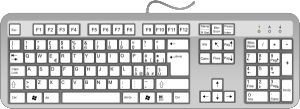Lee-Roy Chetty – Addressing the Housing Shortage in South Africa
Mail & Guardian. December 1, 2012. Access for the poor to urban land and housing is one of the main challenges facing policy makers in South Africa.
Estimates suggest that 26% of households in the six metropolitan areas in our country live in in-formal dwellings, often “illegally” and with limited access to services.
Movement from the informal to the formal sector is also low.
The growth of informal settlement in cities is often the upshot of unplanned urbanisation or lack of coordination. The concept of new urbanism emphasises coordination between long term land use, housing and transportation planning as an essential pillar for smart growth.
It recognises the importance of spatial or geographic proximity, layout and an integrated design of those uses.
Conversely, a lack of efficient integration can throttle sustainable development and eventually leads to an inferior growth path with suboptimal housing, educational, employment and service opportunities.
Read more: Chetty – Addressing the housing shortage in South Africa
Melissa Fernández Arrigiota – Constructing ‘The Other’, Practicing Resistance: Public Housing and Community Politics in Puerto Rico
PhD thesis, 2010, The London School of Economics and Political Science (LSE).
This thesis evaluates the colonial productions and contestations of Puerto Rican public housing and its residents as urban ‘others’. It combines a historical analysis of the political, spatial and material trajectory of the island’s projects with an ethnography of the resistances enacted by a group of residents- mainly women- from one such complex called ‘Las Gladiolas’ against an impending order of demolition and displacement. I argue that while a context of socio-spatial exclusion and environmental determinism has pervaded the constructions of these postcolonial ‘projects’ in ways that have significantly discriminated against its residents, public housing has never been and can never be completed according to that limited governmental design – which today exists under the rubric of urban redevelopment – mainly because communities of solidarity, dissent and conflict emerge simultaneously with and against those formulations, taking on a life of their own in ways that collude with and escape rigid technocratic formulations of housing policy. The research presented emphasizes the symbolic struggle and material reality embedded in Las Gladiolas’s community politics which resists and disrupts a homogeneous vision of past, present and future urban space.
The historical analysis highlights the ways in which ‘othering’ was set in place within the colonial context of Puerto Rico’s urban development in a way which has allowed for the continued stigmatization of public housing projects and for the reproduction of residents’ disadvantage according to raced, gendered and classed discriminations. Those distinctions of difference also created the conditions for particular forms of resistance to emerge. The ethnographic data tells the story of how the political and physical enactment of the buildings’ deterioration intersected with residents’ informal, institutional and legal resistance to relocation. It shows how the contemporary production, experiences and contestations over public housing are not fixed, but multiple and highly ambiguous. The complex interplay that emerges between political, social and material elements demonstrates that the boundaries separating Las Gladiolas from its urban environ, and Puerto Rican housing agencies from the American ones, are in fact open and porous, fluctuating according to use, appropriations, and political and legal transformations.
Full text: M.Fernandez Arrigiota – Constructing The Other
IIDE Proceedings 2011~ Re-Integrating Technology And Economy In Human Life And Society ~ Volume II ~ Contents & Preface
Preface – See below
Information about the International Institute for Development and Ethics – See below
Information about the Conference Proceedings – See below
Andrew Basden & Hawah Ahmad: Down-to-earth issues in (mandatory) IS use: Part I – Types of Issue
Hawah Ahmad & Andrew Basden: Down-to-earth issues in (mandatory) IS use: Part II – Approach to understand multiple meaning and reveal hidden issues
Samira Atashi & Andrew Basden: Investigating the effects of IS development ethical issues on information systems units
Pieter Lems, Noelle Aarts & Cees van Woerkum: Dealing with differences in framing in multi – actor interactions in water management
Fabian von Scheele & Darek Haftor: Cognitive Distortion Accounted Workload in Service Operations
Sina Joneidy & Andrew Basden: Exploring Dooyeweerd’s aspects for understanding perceived usefulness of information systems
Krishnan Harihara, Subramanian: “Using Dooyweerd’s Aspects to Enrich our Understanding of Idolatry”
Preface
This Volume II, of the 2011 Proceedings of the 17th Annual Working Conference of the International Institute for Development and Ethics, offers seven research papers. Two common items of the first five papers is that they all address various issues of information and communication technology use and that their investigation rests upon Herman Dooyeweerd’s theory of multiple aspects of reality. While the remaining two papers focus inter-human communication and time in human operation, respectively, all seven papers presented here deal with normative aspects of human affairs – in that sense all contributions here address human interest in our world. The papers are introduced shortly, as they appear, in the following.
Andrew Basden and Hawah Ahmad, with their “Down-to-earth issues in (mandatory) IS use: Part I – Types of Issue”, contribute to the discourse about those kinds of information systems that are mandatory in use. Their starting point is that “use is not serviceable as a guide to evaluating the quality of such use as experienced by stakeholders”, as many “down-to-earth issues that are crucial to such quality are overlooked”. They suggest that a new approach is required, which is based on what is meaningful in everyday life, that in turn may be comprehended by means of H. Dooyeweerd’s notion of multiple modalities of human existence. They conclude that such an approach “provides a philosophical underpinning for not only understanding the nature of down-to-earth issues, nor just showing their diversity, but also for explaining why the notion of DTE issues is needed for analysis and understanding of IS use.” Read more
IIDE Proceedings 2011 ~ Vol. 2 ~ Down-To-Earth Issues In (Mandatory) Is Use; Part I – Types Of Issue
 Abstract
Abstract
The extant discourse about mandatory IS use is not serviceable as a guide to evaluating the quality of such use as experienced by stakeholders. Many ‘down-to-earth’ issues that are crucial to such quality are overlooked. A new approach is required, which is based on what is meaningful in everyday life of use rather than on the abstractions used in academic discourse. Reasons why these abstractions are unhelpful are discussed and Dooyeweerd’s notion of modal aspects is proposed as a foundation for developing more serviceable approaches.
Keywords
Down-To-Earth, Mandatory Use, Dooyeweerd’s aspects
1. Introduction
In the era of technology, many organisations have made substantial investments in information system (IS) with the intention of increasing organisational performance. So the success or quality of IS use is often linked closely to the extent to which it contributes to organisational life, and IS use is one the important areas to be considered by management when implementing or evaluating any IS (DeLone& McLean, 1992; Venkatesh,et al., 2003).
Since the link with organisational performance is complex, broad concepts are often employed in an attempt to understand it. A common example is the extent to which an organisation deploys IT to support operational and strategic tasks (Ives &Jarvenpaa, 1991), and this is the key consequent variable in Davis’ (1989) technology acceptance model (TAM). IS use was among the most frequently used measured of success in 1992 and remained so for at least a decade (DeLone and McLean, 2003). Articles on IS use constitute around one third of the total publication space in the top IS journals, MIS Quarterly and IS Research (Barki, et al., 2007).
There are two problems. Much of this discourse is irrelevant when considering mandatory IS use (MISU) since the use is by definition 100%. So alternative concepts have been suggested, such as ‘intention to use’, which is the secondary output of TAM.Later many studies specifically focused on mandatory IS use (Ram & Jung, 1991; Lou, et al., 1995; Singletary, et al., 2002; Adamson & Shine, 2003; Ward, et al., 2005; Linders, 2006; Hennington, 2007; Lee & Park, 2008).
So why should there be yet another paper on mandatory IS use? The second problem with extant discourse, even on MISU, is that it doesn’t sufficiently express the reality of IS use on the ground.
Despite huge research in IS usage area, the use of the system is still not well understood (Mishra &Agarwal, 2009). Is it only a matter of time and incremental effort before IS use is understood? Yousafzai (2007) has collected 70 constructs related to perceived usefulness in IS use, so is it possible that IS use may be understood by rationalising them? Barki [2008] suggests four approaches to properly understanding the constructs, including defining them clearly, specifying dimensions and relationships, exploring their application to other contexts, and expanding their conceptualizaton.
Whilst such approaches might indeed help towards understanding of IS use, the present situation is reminiscent of some scientific endeavours that Kuhn (1970) observed that had reached a stage ready for paradigm shift. After a long period of incremental correction of previous views, an increasing sense of misfit between experienced reality and theories leads to a new approach to the area of reality, a new paradigm. The primary reason for this paper is to suggest a new way of looking at IS use; this focuses on what might be called down-to-earth (DTE) issues of mandatory IS use. The approach can perhaps be extended to non-mandatory IS use, so “MISU” is often rendered as “(M)ISU”.
In this paper, quality of IS use is conceived more broadly and yet also, paradoxically, in a more precise way, because of a pluralistic approach. In most literature, ‘good’ (or successful, beneficial, high quality) IS use is conceived in terms of the organisation whereas this paper also takes into account the individuals who live and work with, or are affected by, the IS. In most literature, the notion of ‘good’ is located in abstracted, predefined variables like amount of usage, intention to use or perceived usefulness (Davis, 1989), and the plethora of ‘external variables’ encountered in actual experience of IS use [Yousafzai 2007] are deemed meaningful only insofar as they contribute to the predefined variables. This paper reverses this, treating this plethora of ‘external variables’ as that which is truly meaningful, and the supposed abstract variables are defined by reference to, and as an outcome of, what occurs in everyday experience of IS use. In most literature ‘good’ IS use is seen as a goal to which everyday experience should be designed to contribute while in this paper, the ‘good’ is seen as an outcome of that everyday IS use. Most extant research in issues of IS use has been of a positivist nature; this paper takes a more interpretivist approach. Most literature focuses on issues of interest to researchers and the academic or management communities, whereas this paper focuses on issues that are meaningful to users and others who experience the IS in use. Read more
IIDE Proceedings 2011 ~ Vol.2 ~ Down-To-Earth Issues In (Mandatory) Information System Use: Part II – Approach To Understand And Reveal Hidden Issues
 Abstract:
Abstract:
This paper proposes a new way of approaching mandatory information system use (MISU) to understand and reveal hidden issues which are meaningful in everyday life of system users. We call these Down-to-Earth (DTE) issues, and they are better at providing guidance for information system evaluation. Case study research in using information system was conducted on system users to demonstrate how DTE issues are formed. Unstructured interview was used as the main data collection method. Results show that the new way helps to understand in depth and reveal the hidden issues, which makes this approach more practical for system evaluation.
Keywords:
Down-To-Earth, Mandatory Use, Dooyeweerd’s aspects
1. Introduction
Information systems (IS) used in the organisation are seen to provide benefits in terms of increased productivity, and improved strategic positions and daily operations (Yoon & Guimaraes, 1995). Such benefits though are at the organisational level, whereas at the individual level, the system can provide benefit in helping individuals to complete job tasks and obtain evidence for decision making. To evaluate the benefits especially to individual system users it is important to look for meaningful issues in everyday life working experience (Basden, 2008).
Basden and Ahmad (2011) emphasize `meaningful issues’ in mandatory IS use (MISU), describing them as Down-to-Earth (DTE) issues. DTE issues are sensible and practical for system evaluation because they are specific in their context and easily understood by system users. Current debate in the field discussed the contrast between DTE issues and extant issues. Examples of extant issues are perceived ease of use and perceived usefulness (Davis, 1989; Shih & Huang, 2009), IS quality (Lin, 2010; Linders, 2006), management support (Chang, et al., 2010; Lin, 2010; Rouibah, et al., 2009; Shih & Huang, 2009) or computer self-efficacy (Adamson & Shine, 2003; Linders, 2006; Singletary, et al., 2002). Basden and Ahmad (2011) argue that, in providing guidance to practical evaluation of IS use, such extant issues are unhelpful in several ways: unhelpful level, unhelpful connotation, unhelpful abstraction, unhelpful combination, as well as missing many important issues.
‘Unhelpful level’ refers to issues that might be of interest to senior management, IS developers or researchers but have little direct meaning to users. Here, ‘users’ not only refer to direct users. They include all those involved in tasks and activities that in some way relate to the IS in use. Users are seen as social actors (Lamb & Kling, 2003), not just as individuals. ‘Unhelpful connotation’, on the other hand, refers to unspoken meaning imposed on concepts because of the cultural assumptions of researchers which differ from the assumptions made by users. ‘Unhelpful abstraction’ refers to issues that are too general, such as ‘risk’. Next, ‘unhelpful combination’ refers to issues that combine several important meanings that could and should be separated. Lastly, ‘missing’ issues refer to those that happen to have been overlooked by extant discourse because it has not yet recognised their importance even though they have been important to users. Read more
IIDE Proceedings 2011 ~ Vol. 2 ~ Investigating The Effects Of IS Development Ethical Issues On Information System Units From Dooyeweerd’s Suite Of Aspects Perspectives
 Abstract
Abstract
Discussion of the likely effects of ethical issues of Information System Development (IS Development – ISD) on information system units is sparse and does not present a coherent picture. In this regard, throughout this theoretical study, it is tried to apply Dooyeweerd’s suite of aspects to ethical issues of ISD in order to explore and analyse their consequences of functioning regarding good and bad of applicable aspects. Conducting this analysis is describing that ethical functioning will result in diverse types of good which are distinguishable by referencing each to specific Dooyeweerd’s aspects. This functioning also implicates a given situation in which sacrifices such as effort, pleasure or etc is involved as thus extra good will be created. In this context, the distinction between the conception of bringing (extra) good by ethical functioning and merely preventing bad by juridical functioning is clarified throughout applying Dooyeweerdian aspectual analysis.
Keywords:
Ethical Issues, Ethical Functioning, Dooyeweerd’s Aspects, IS Development (ISD), Extra Good
1. Introduction
Ethical principles have been always assumed as part of everyday life and problems and issues emerged by ignoring them have been also discussed by different scholars (Stahl, 2007, 2008). Ethical issues can be studied in relation to professional life as well (Gotterbarn, 1992, Stahl, 2008). This includes ethical principles in information system (e.g. McDonald, 2007) and the information system development areas (Rogerson, et al, 2000; Cohen and Cornwell, 1989; Wu, et al., 2001; Warren, 2006). Gotterbarn (1992) debated that professionals must be aware of ethical issues in their profession in order to restrict the possibility of their occurrence. Charlesworth and Swery (2002) argued that IS professionals should be aware of ethical issues that both generally and specifically can affect their works, organizations and related stakeholders.
However, as studies show and also explicitly highlighted by some scholars (e.g. studying difference between ethical and legal issues by Pollack and Hartzel, 2006), discussions of consequences of ethical issues suffers from blending with other subject areas such as moral issues, legal issues, social issues and etc. Besides, different studies in this field (e.g. McDonald, 2007) and ethical issues frameworks that formulated by disparate institutes (e.g. ACM Code of Ethics) demonstrate the importance of discussing consequences of ethical issues in ISD.
However, the treatment of ethical issues lacks an overall coherence, and there is still need to discuss the effects of ignoring and breaking ethical issues in ISD. Understanding those consequences can help IS developers and information system units be aware of possible problems they might face in information system projects. To discover those consequences, an understanding of ethical functioning that embraces the wide diversity of issues and their consequences is required. For this aim, we have first studied and employed several existed ethical issues frameworks outlined by scholars or (related) institutes. And in the second step, those ethical issues are analyzed by the means of Dooyeweerd’s suite of aspects which consists of fifteen irreducible yet related aspects. The meanings of aspects can indicate the main properties and behaviours of ethical issues and the laws of aspects can address their way of functioning and highlight good and bad consequences.
It is worthy to point out that ethical issues are not limited to selected ethical issues discussed in this study. That is, the aim of this paper is not extending or modifying ethical issues but authors intend to highlight the consequences of breaking or ignoring ethical issues by selecting some of existed ones.
We expect that this brief theoretical study, can highlight the role of ethical issues in ISD and draw involved IS developers’ attention to include ethical issues in Information System (IS) projects in adjustment with other important factors. Read more



